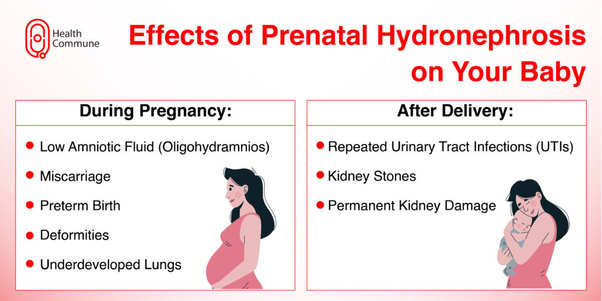Newborns with Hydronephrosis: Frequently Asked Questions Addressed
What is prenatal hydronephrosis?
Hydronephrosis refers to the swelling of the kidney due to the accumulation of urine. When this happens before birth, it is called prenatal, antenatal, or fetal hydronephrosis.

**
What are the causes of prenatal hydronephrosis?**
This condition may be physiological (transient) or may be occurring due to some underlying pathology:
Physiological: This is seen during the early development of the urinary tract. The majority of such cases are transient and resolve on their own
Blockage: At the pelvic ureteric junction (PUJ), which is the area where the ureter and kidney connect, there is a common pathology that underlies this condition. Moreover, a blockage may develop at the posterior urethral valve or at the vesicoureteric junction (VUJ), which is where the ureter and bladder meet.
reflux of urine: Urine flowing backward from the bladder into the kidneys is known as vesicoureteral reflux. This typically happens when there is an inadequate valve between the ureter and the bladder.
Anatomical flaws: Rarely, for instance, if the infant has two collecting tubes rather than one, this may cause further blockage (hydrocoele) or directly result in urine or backflow. Ultrasonography is typically able to detect such problems.
Prune Belly syndrome: This is characterised by a triad of incomplete development of the abdominal muscles, urinary tract abnormalities and undescended testicles
To Know More: Hydronephrosis In Newborns
Health Commune
Email Id: connect@healthcommune.in
Website: https://www.healthcommune.in